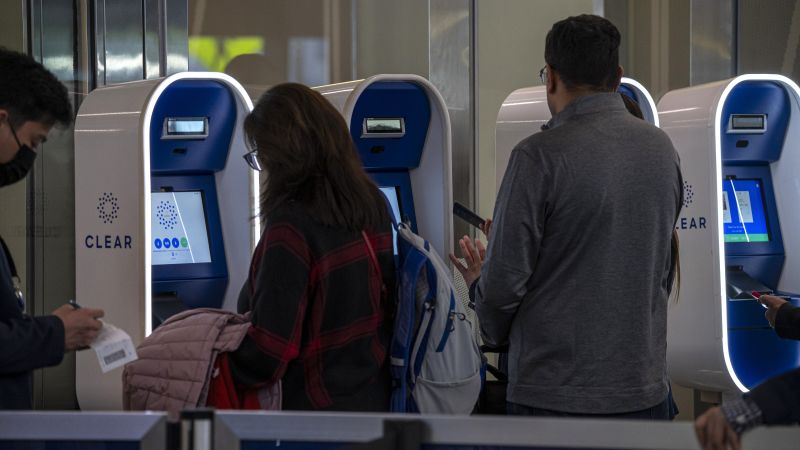Clear is a service that allows travelers to skip security lines at airports by using a biometric scan and paying $189. Some California lawmakers are concerned that this service creates an inequity between those who can afford it and those who cannot. They have introduced a bill that would place a moratorium on Clear’s expansion at state airports, pending approval by the full California Senate, Assembly, and Governor Gavin Newsom.
Clear, a publicly-traded security company, offers its members the ability to bypass security lines at airports, sporting events, and concerts in exchange for an annual fee. Members can verify their identity using biometric data at an airport kiosk and are then escorted to the front of the TSA security line by a Clear employee. This service has led to frustration among non-members who feel it is unfair that some travelers are able to skip the line simply because they can afford to do so.
Senator Josh Newman, a Democrat, introduced the bill in response to the inequality caused by line-skipping services like Clear. The bill aims to address this issue by requiring Clear and other third-party screening services to operate separate lines for their members, thereby eliminating the need for general passengers to watch others skip ahead in line. The bill also prohibits airports from entering into new contracts with private companies like Clear if they use existing TSA security lines and screeners.
While the bill has support from organizations like the Association of Flight Attendants and the California branch of the American Federation of Government Employees, it faces opposition from Clear, major airlines like Delta, California airports, and business groups such as the California Chamber of Commerce. Clear argues that they have created jobs in the state, served nearly 1 million California residents, and contributed millions in revenue to state airports. They also work with airline and airport partners, as well as government entities, to ensure a safe and efficient checkpoint experience for all travelers.
A legislative analysis of the bill conducted by the California Senate Transportation Committee raised concerns about potential revenue loss for airports if Clear were to be restricted. It also noted the difficulty in obtaining dedicated TSA security lines and screeners, as TSA is a federal agency under the jurisdiction of Congress. However, the analysis suggested that Clear may be able to advocate for additional funding for TSA lanes and agents, emphasizing the importance of collaboration between Clear, airports, and government entities to address security concerns while ensuring equity for all travelers.













